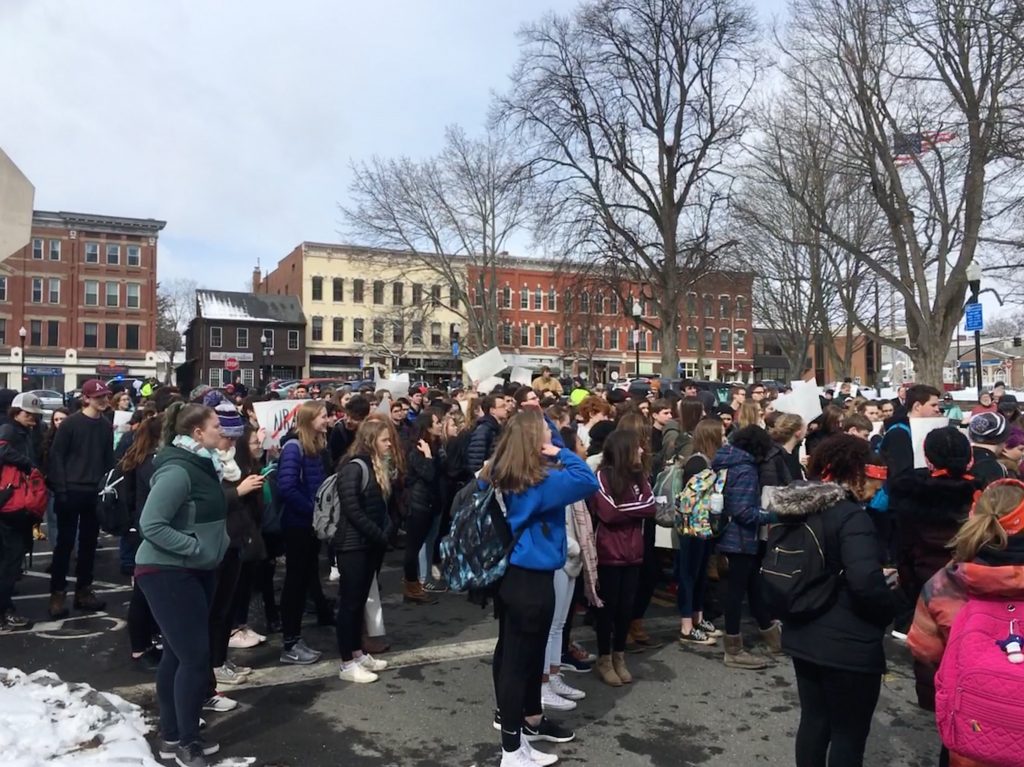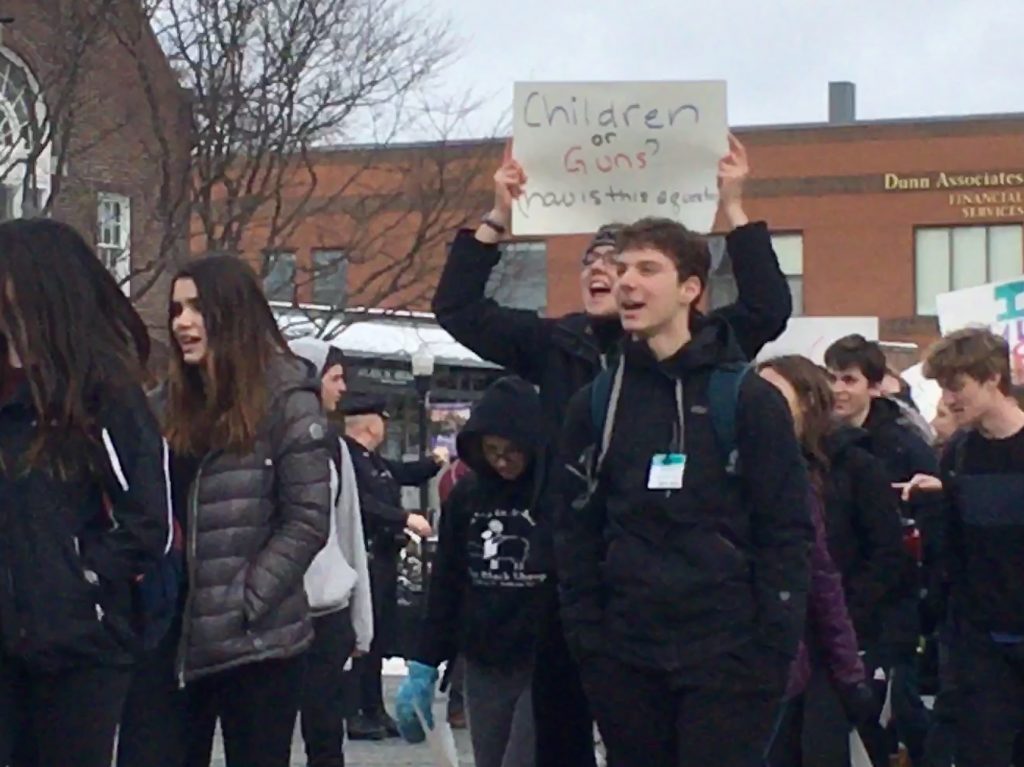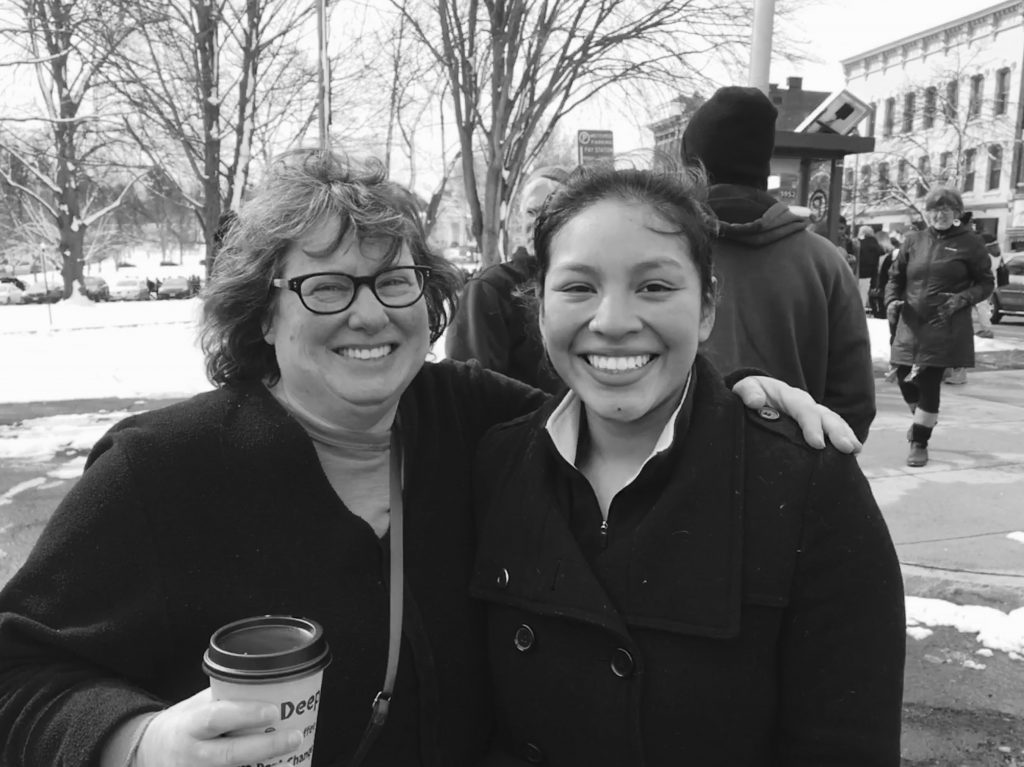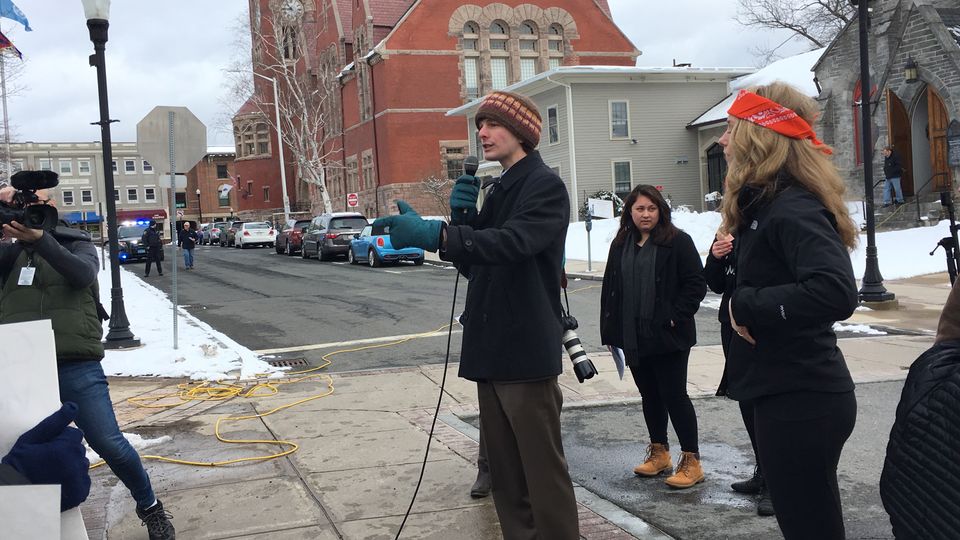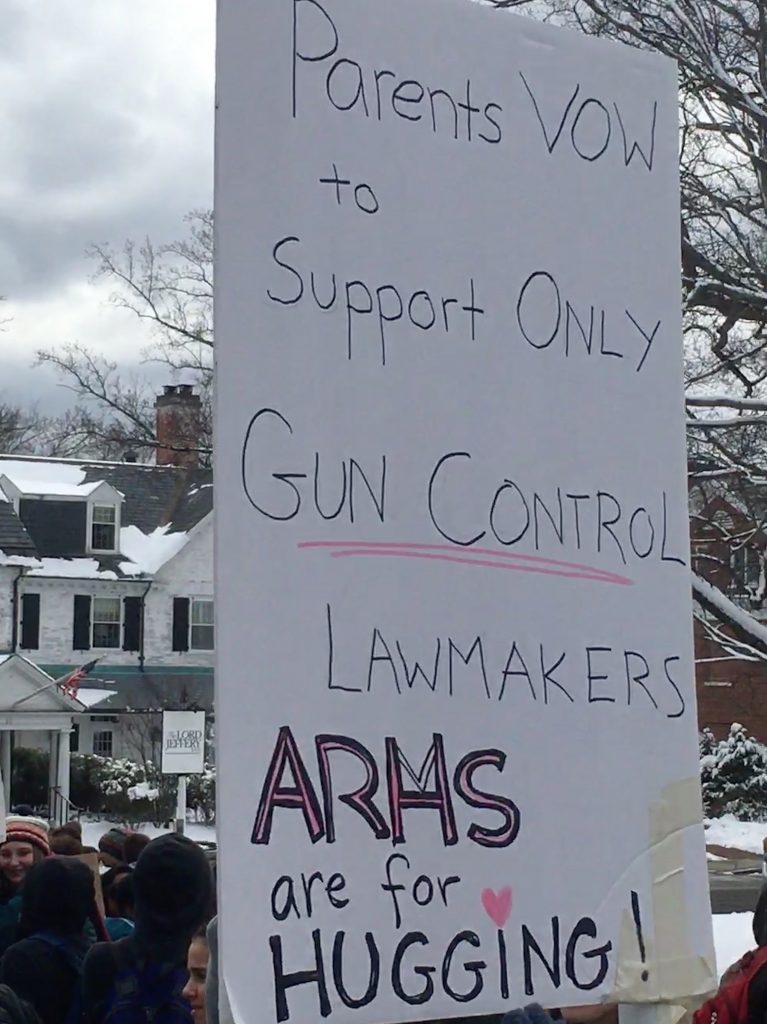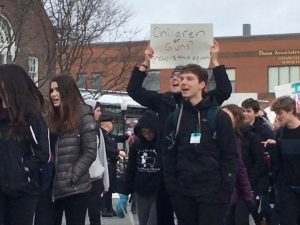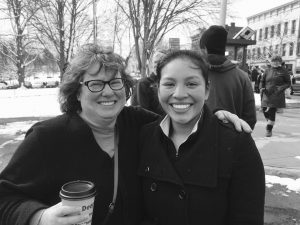About 200 students assembled in front of Amherst-Pelham Regional High School at 10 a.m. on the morning of March 14. Gathered together, huddled against the cold, young activists solemnly honored the memory of the 17 victims of the Marjory Stoneman Douglas High School shooting with 17 minutes of silence. Afterward, they sang This Little Light of Mine, a song adapted by civil rights activists in the 1960s in connection with the civil rights movement.
Indeed, many have likened this student movement to the marches and civil protests of the black civil rights era. Thousands of students across the country walked out of classes on Wednesday. From Hawaii to Maine, students filed out of their schools — some in silence, some chanting — but all in solidarity with their late peers whose lives were taken in a sudden act of gun violence in Parkland, Florida. Across the nation the protests are intended to pressure Congress to approve gun control legislation.
From the school, the students walked a half mile to the Amherst Common while chanting of “No More Silence, End Gun Violence.” Signs read, “Universal Background Checks Now” and “I Go to School to get A’s, not PTSD.” Other signs bore the names of Parkland victims Alex Schachter, Meadow Pollack, and Stoneman Douglas assistant football coach, Aaron Fies.
It’s a remarkable expression of First Amendment Rights not lost on these students. Jonathan, an Amherst Regional High School senior who didn’t want his last name used, said “I think it’s going to make a difference. I don’t think they can ignore us if we all walk out of school. They’re going to have to change things.”
Protesters included a number of adult supporters, but parents and onlookers kept a respectful distance, allowing students to create their own space and to maintain the youth-driven spirit of the gathering. Following the lead of the survivors-turned-activists in Parkland, students and parents were mindful of their power to keep gun reform action on the national stage.
Parent and Hampshire College dean Laura Wenk looked on as her daughter Mina Stern-Wenk, a junior, walked with fellow students down Amherst’s Main Street. When asked about her daughter’s activism, Wenk smiled, “I love it. She’s finding her voice and speaking out. I’m hopeful about this generation speaking out and saying the things we’re not.”
Representative Solomon Goldstein-Rose, kicked off the formal speeches on the common. He commended the students from his alma mater. “It’s amazing that students are gathered together today to effect change,” he said. But he warned that change was not easy and that they would have to continue to fight for those changes to become permanent.
Student Emily Stetson elicited cheers when she passionately expressed the need for people her age to speak out for change, saying that they couldn’t wait to be what many describe as “the future.” She argued that they had to use their voices now in order to be heard.
ARHS senior Leif Maynard was one of the organizers of the walk out and march to Amherst to Amherst Common. Maynard, a red bandana across his forehead, wanted to be clear about the reasons why he and his fellow activists were participating in the walkout.
“We’re protesting the lack of federal regulations surrounding semi automatic weapons,” he says. “We’re not protesting our school. We are expressing our fear and frustration at legislators for not prioritizing our safety.”
Whereas other school’s prohibited students from leaving their school buildings and school grounds, Maynard says the administration at ARHS was very supportive. “I think it’s because Amherst has such a strong history of activism,” he said.
Gina Beavers can be reached at gbeavers@valleyadvocate.com.

